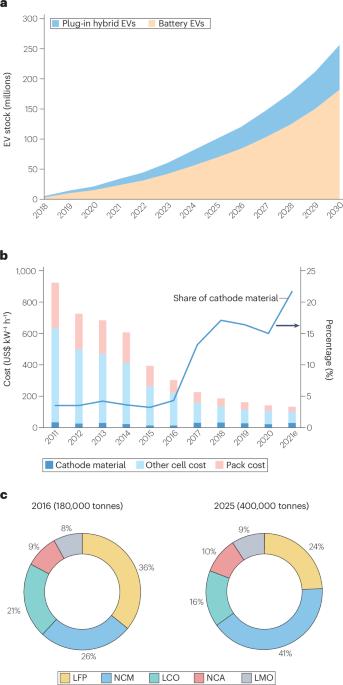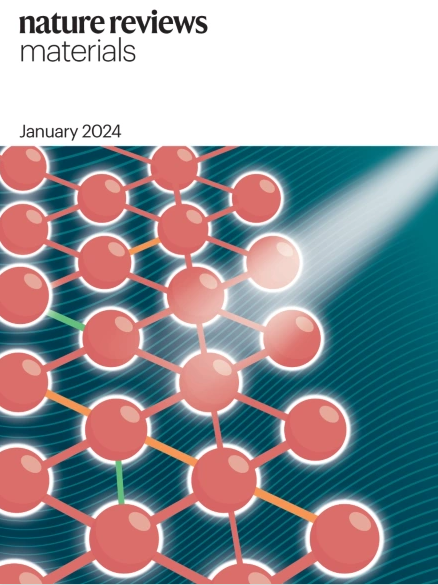了解材料失效机制,优化锂离子电池回收
IF 86.2
1区 材料科学
Q1 MATERIALS SCIENCE, MULTIDISCIPLINARY
引用次数: 0
摘要
电气化的步伐正在加快,而回收利用是实现循环电池生命周期的关键。然而,随着锂离子电池(lib)在现代技术中的使用扩大,以及越来越复杂的元件被纳入其中,引入了复杂的降解行为,为回收带来了挑战。基于冶金的材料提取方法与材料衰变的复杂性无关,但代价是损害了经济和环境的可持续性。虽然直接再生有望减少回收对环境的影响,提高其经济效益,但它不能很好地处理不同规模和参数的失效。为了有效地管理不断增长的已使用lib流,必须在多个方面采取策略。回收机制的最新发展突出了理解电池失效机制对实现环境友好和可持续回收实践的重要性。在这篇综述中,从颗粒尺度到细胞尺度讨论了最先进的lib的失效机制,为导航回收工作提供了见解。综述了材料提取和直接再生的最新进展,并对下一代电池的回收、回收过程优化和回收策略提出了最紧迫的挑战。本文章由计算机程序翻译,如有差异,请以英文原文为准。


Understanding materials failure mechanisms for the optimization of lithium-ion battery recycling
The pace of electrification is surging, and recycling is key towards a circular battery life cycle. However, as the usage of lithium-ion batteries (LIBs) expands in modern technologies and ever more complex elements are incorporated, complicated degradation behaviours are introduced, posing challenges for recycling. Metallurgy-based material extraction methods are independent of the complexity of materials decay but at the cost of compromised economic and environmental sustainability. Although direct regeneration is expected to reduce the environmental impact of recycling and improve its economic benefits, it cannot properly deal with failure at different scales and parameters. To effectively manage the growing stream of spent LIBs, strategies on multiple fronts are imperative. Recent developments in recycling mechanisms have highlighted the importance of understanding battery failure mechanisms to achieve environmentally friendly and sustainable recycling practices. In this Review, failure mechanisms in state-of-the-art LIBs are discussed from the particle scale to the cell scale, offering insights for navigating recycling efforts. Recent advancements in material extraction and direct regeneration are summarized, and perspectives on the most pressing challenges for recycling, optimization of recycling processes, and recycling strategies for next-generation batteries are offered. Lithium-ion batteries suffer from complicated degradation behaviours, posing challenges for recycling. This Review explores the failure mechanisms in state-of-the-art cathode materials from the particle to the cell scale and discusses how these insights can help to improve material extraction and direct regeneration to optimize recycling processes.
求助全文
通过发布文献求助,成功后即可免费获取论文全文。
去求助
来源期刊

Nature Reviews Materials
Materials Science-Biomaterials
CiteScore
119.40
自引率
0.40%
发文量
107
期刊介绍:
Nature Reviews Materials is an online-only journal that is published weekly. It covers a wide range of scientific disciplines within materials science. The journal includes Reviews, Perspectives, and Comments.
Nature Reviews Materials focuses on various aspects of materials science, including the making, measuring, modelling, and manufacturing of materials. It examines the entire process of materials science, from laboratory discovery to the development of functional devices.
 求助内容:
求助内容: 应助结果提醒方式:
应助结果提醒方式:


